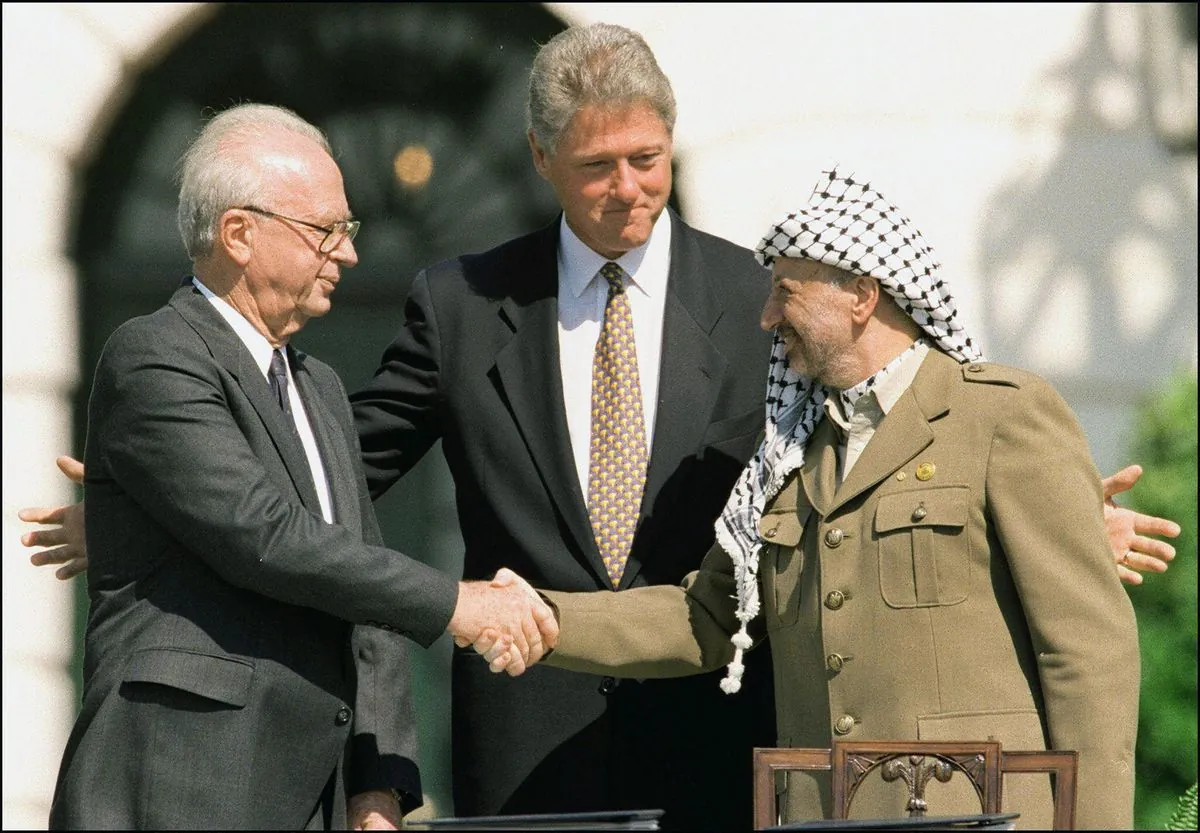Israel's Strategy Shift: Countering Iran's Long-Term Pressure Tactics
Israel's current approach inadvertently aligns with Iran's strategy of constant pressure. A new multi-faceted plan is needed, involving Gaza, Lebanon, and the West Bank, to effectively counter Iran's long-term tactics.

Iran's long-standing strategy to pressure Israel through constant conflicts on its borders has been inadvertently reinforced by Israel's current approach. This situation calls for a significant shift in Israeli policy to effectively counter Iran's tactics.
Ayatollah Ali Khamenei, Iran's supreme leader since 1989, and Hassan Nasrallah, the leader of Hezbollah, believe that sustained pressure will lead to "reverse migration" of Israelis, ultimately weakening the state. This belief forms the core of their military strategy, creating what some refer to as a "ring of fire" around Israel.
In January 2024, Nasrallah stated that Israelis would flee under pressure, echoing Khamenei's March 2024 assertion about Israel's "crisis" in Gaza. However, Israel's current policies seem to be validating this strategy by engaging in wars of attrition on multiple fronts.
To counter this, Israel needs a new approach:
End the war in Gaza:
- Focus on dismantling Hamas's military infrastructure
- Seek alternatives to IDF presence in the Philadelphi Corridor
- Involve Egypt, Morocco, and the UAE in Gaza's administration
Address the northern border:
- Negotiate a cease-fire with Hezbollah
- Secure US commitment to back Israel if Hezbollah violates agreements
Manage the West Bank situation:
- Reduce unemployment by allowing vetted Palestinians to work in Israel
- Address economic stress by releasing withheld taxes
- Crack down on settler violence

"We must choose a path that ensures Israel's security while also paving the way for regional stability and cooperation."
The involvement of the United States is crucial in implementing this strategy. The US could provide technology and support to prevent arms smuggling into the West Bank and offer deterrence against Hezbollah. Additionally, the possibility of a US-Israeli defense treaty could strengthen Israel's position against Iran.
Saudi-Israeli normalization remains a key factor, with the Saudis demanding a credible pathway toward a Palestinian state. This requires Netanyahu to prioritize normalization over the interests of far-right elements in his government, such as Itamar Ben-Gvir and Bezalel Smotrich.
The ongoing Israeli-Palestinian conflict, now in its eighth decade, underscores the urgency of finding a sustainable solution. The establishment of the Palestinian Authority in 1994 as part of the Oslo Accords was a step towards this goal, but progress has been limited.
Israel's strategy must evolve to address the multifaceted challenges it faces. By ending the war in Gaza, stabilizing the northern border, and addressing issues in the West Bank, Israel can work towards undermining Iran's long-term strategy of constant pressure.
The interception of Iranian drones and missiles by US forces and allies on April 13, 2024, demonstrated the importance of international cooperation in regional security. This event could serve as a catalyst for considering a formal US-Israeli defense treaty.
In conclusion, Israel's current approach inadvertently aligns with Iran's strategy. A comprehensive shift in policy, involving difficult decisions and international cooperation, is necessary to effectively counter Iran's long-term tactics and ensure Israel's security and stability in the region.


































